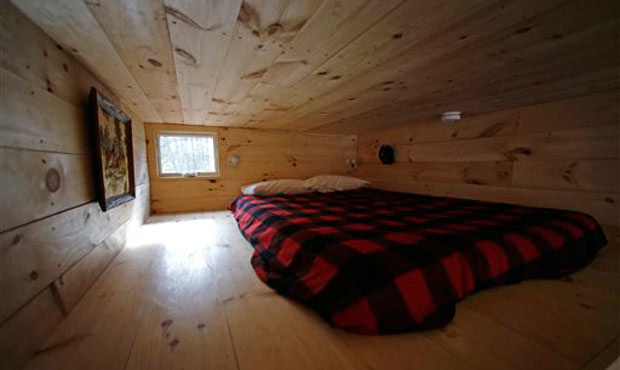Tacoma’s U.S. Open: Tax-free cash for owners willing to rent
Apr 22, 2015, 10:26 AM | Updated: Mar 4, 2016, 5:46 am
A Port Orchard woman telephoned “Real Estate Today,” our Sunday talk show, questioning the tax implications for people renting out their homes for the 115th United States Open Golf Tournament, June 18-21, at Chambers Bay south of Tacoma.
Local news outlets have stated some homeowners with larger properties bordering the course would charge up to $40,000 for the week, easily within the reach of corporations attempting to appease clients and executives. Not only will the homeowner get a huge payday – the money will come tax-free.
How is that possible? According to the Internal Revenue Service, an owner can derive tax-free income from renting a property, provided the owner rents it out for 15 days or fewer and doesn’t claim any of the tax deductions typically allowed on rental property such as depreciation or maintenance.
This option can come in handy for folks who do not want to be in the rental game, yet occasionally find they could rent their place. For example, one Silverdale family recently attended a family wedding on the East Coast. While they were gone, they rented out their home for 10 days to friends of their neighbors and earned $2,000 tax-free dollars.
The rules change, however, if the getaway house becomes a full-time rental or investment property. In a nutshell, the 14-day rule flip-flops. Under current federal tax laws, the owner can still use a rental vacation home for 14 days or 10 percent of the amount of time the house is rented, whichever is greater, without jeopardizing its status as a rental property and tax shelter.
Let’s say you buy a vacation rental with the intention of renting it out full time. You receive three benefits:
First, the renters are buying the house for you. Second, you still can cash in on any appreciation that might result from increasing property values. And third, you can depreciate which can provide substantial tax benefits.
Depreciating an asset means you are taking a deduction for the value lost as an asset ages. According to accountants, the period of time over which you depreciate your property can become the subject of controversy. Different taxpayers have depreciated the same type of property over widely different periods. Often, it depends upon when the property was put “in service.”
Investors in vacation homes must use the tax benefits from depreciation to cover their costs. What is left for them then is profit made on appreciation in the value of the property.
The 14-day maximum-personal-use rule means a house at the ocean with a 90-day rental season can be owner-occupied for 14 days, instead of the nine days that would be allowed under the 10 percent rule. With longer rental seasons, however, the 10 percent rule can be a bonus. For example, a mountain resort home near winter ski slopes and summer lakes might be rented for 250 days a year, allowing the owner to use it for 25 days.
Personal use does come at a cost. Depreciation is limited only to the percentage of time that a house is rented. If you rented for 90 days and use it yourself for 10, you can take only 90 percent of the total expenses and depreciation.
Another way to catch some time at your cabin in the mountains without eating into or exceeding the 14-day or 10 percent limit is to clean the house yourself between renters. Days spent maintaining the house do not count toward the personal-use limit. And you can deduct travel costs to get to the house and expenses such as paint and cleaning supplies.
One of the more effective uses of a vacation home as a tax shelter is for future retirement. For example, if you are 50 years old, you can buy a vacation home, furnish it and have renters pay for it while you capture the depreciation for 15 years. When you’ve gotten every shred of tax advantage out of it, you can move in and convert it to a private residence.
And because most mortgages “front-load” interest, you will have used up most of your tax deductions from the mortgage in the 15 years you worked and rented the home.
New book: Follow real estate agent and basketball coach Ernie Creekmore as he attempts to solve another murder – this time a “helicopter” parent constantly prodding his star athlete son. Tom Kelly’s “Hovering Above a Homicide” is now in print and E-book form. Get a signed copy at TomKelly.com or purchase at bookstores everywhere and online.










